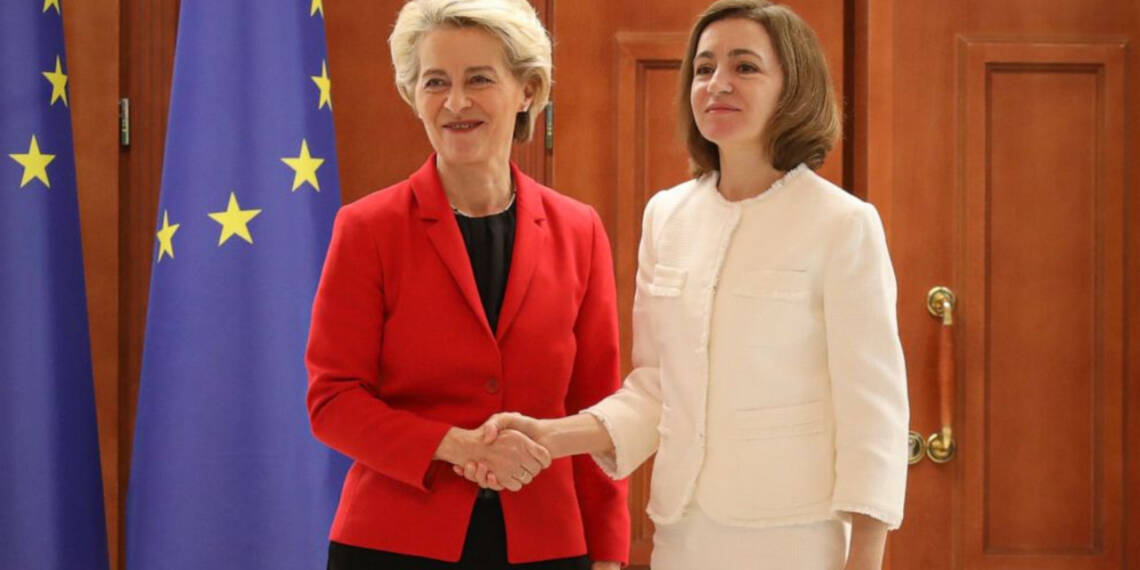The European Union (EU) just announced additional sanctions, but this time they are not aimed at Russia. Surprisingly, attention has switched to Moldova, a former Soviet country sandwiched between Romania and Ukraine.
The Moldovan government has requested the EU for assistance in maintaining stability, sovereignty, and the rule of law within the country. And it has responded with sanctions.
Moldova’s Strained Relationship with Russia
First let’s know the background. Moldova’s relationship with Russia has been fraught with tension and enmity. Moldova’s current government has been openly critical of Russia and its policies, frequently expressing strong opposition to Moscow’s influence in the area. This anti-Russian stance has gained widespread support among the Moldovan people.
Growing Dissatisfaction and Protests
Despite its anti-Russia stance, the Moldovan government faces substantial domestic issues. Many Moldovans are unhappy with the current administration and have come to the streets to demand a change in leadership. There have even been rumours of a pro-Russian coup plotting by disaffected elements within the country in some circumstances.

EU Responds to Moldovan Government’s Request
Now, the perturbed Moldovan government requested the EU to address risks to stability, sovereignty, and the rule of law. And this is how the EU has responded. It has developed a unique sanctions mechanism in response.
Multiple media sites claimed on Wednesday that the EU was preparing penalties against numerous Moldovan individuals for allegedly organising a pro-Russian coup. Two more will face punishment for alleged anti-Ukrainian actions.
According to the US government-backed Radio Free Europe/Radio Liberty (RFE/RL), EU Foreign and Security Policy Commissioner Josep Borrell compiled the list on Monday.
Read More: Russia’s final warning to Moldova
The EU can use this framework to target persons and companies suspected of jeopardising Moldova’s domestic affairs. The EU has now imposed these penalties in response to the purported threats.
Moldova’s Aspiration for EU and NATO Membership
Despite internal challenges, the current Moldovan administration remains dedicated to joining the European Union and NATO. This objective reflects Moldova’s desire to become more closely aligned with West, enhance its democratic underpinnings, and minimise its reliance on Russia. These ambitions, however, have not protected the government from criticism and internal resistance.
EU Sanctions Targeting Individuals with Russian Links
The EU has targeted persons in Moldova who have been linked to Russia under the special sanctions mechanism. The list is led by Israeli-born businessman and politician Ilan Shor, his party’s vice-president Marina Tauber, and former politician Vladimir Plahotniuc. In addition, retired police officer Gheorghe Cavcaliuc and Russian businessman Igor Chaika are said to be under investigation.

Recent Developments and Political Upheaval
Ilan Shor’s party won a recent municipal election in the autonomous region of Gagauzia. The Moldovan administration, however, moved to overturn the results, citing irregularities. Following a lengthy legal battle, the courts validated the election results, certifying Shor’s party as the rightful winner. Furthermore, Gheorghe Cavcaliuc, who is accused of working with Shor on a 2022 “coup” attempt, escaped Moldova for London in 2021.
Read More: Romania’s rising star, Diana Sosoaca is making the West anxious
EU’s Concerns about Government Overturning
The EU is concerned about recent developments in Moldova, particularly the possibility for destabilisation triggered by a change in administration. Given the delicate balance of power and the current administration’s intentions to integrate with the EU and NATO, any unexpected change in leadership or influence might have serious ramifications for Moldova and the region.
The EU maintains vigilance in its attempts to prevent any potential government overthrow that could derail Moldova’s route to European membership.
Watch More:








